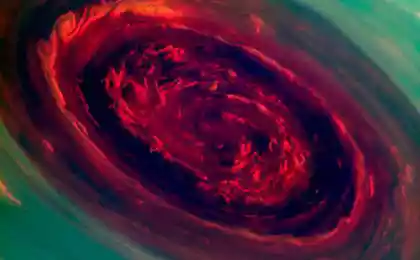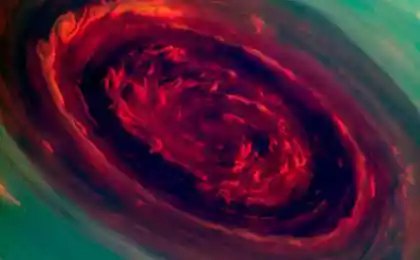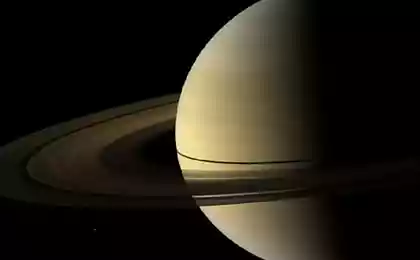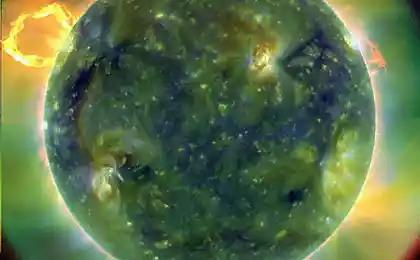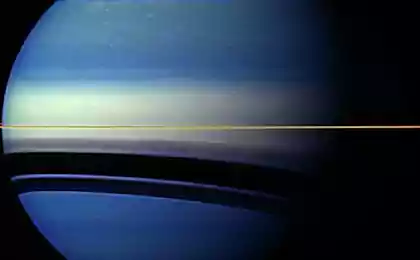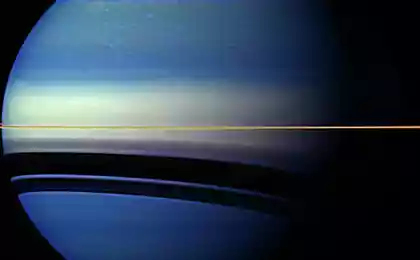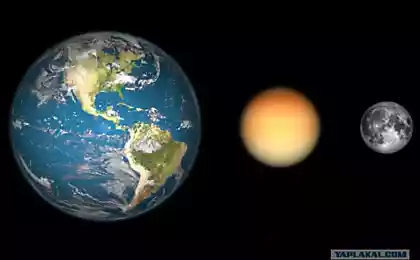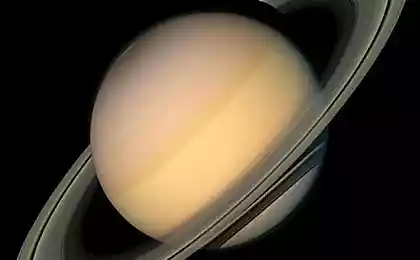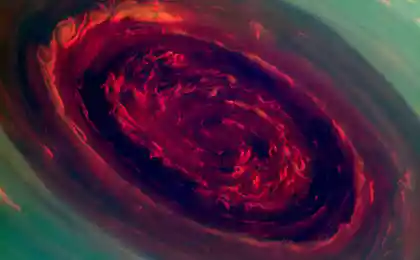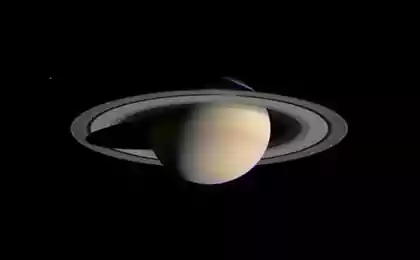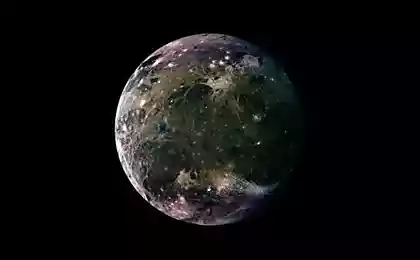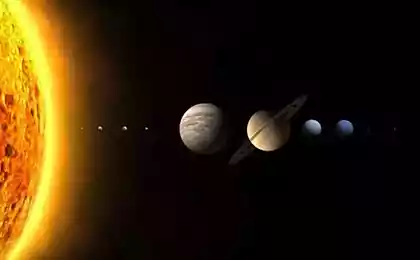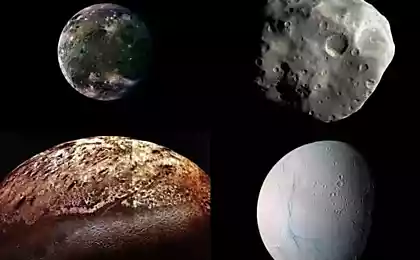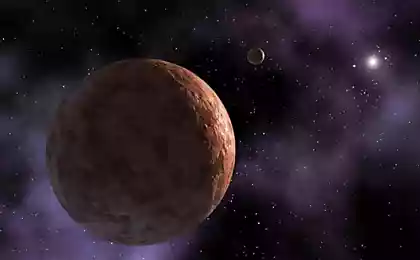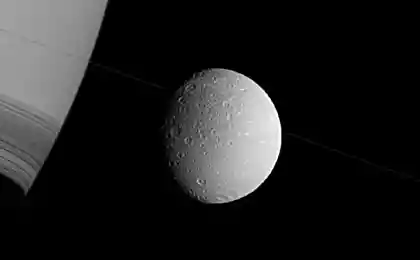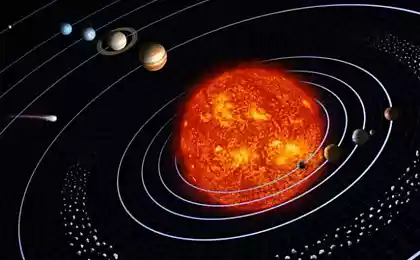490
Scientists have found another similarity between Earth and Titan
The scientists found on Saturn's moon Titan polar winds which remove gas from its atmosphere. The analysis of data collected by the Cassini spacecraft over the past seven years, showed that the interaction between the atmosphere of Titan, the Sun's magnetic field and its radiation, the movement of hydrocarbons and NITRILES from the polar regions of Titan in space. Something similar is happening on the Ground.
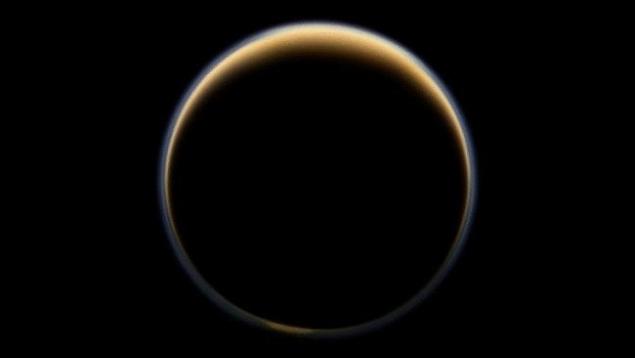
The opening belongs to researchers from University College London (UCL). The results were published in the journal Geophysical Research Letters, and briefly about them, said resource Phys.org.
Titan is a very interesting object in the Solar system. Just like Earth and Venus, Titan has a rocky surface and dense atmosphere. Such similarities there is no one natural satellite of the planets of our system. This is the only object in the Solar system besides Earth where rivers flow to the sea and fall precipitation. For its size, the Titan exceeds the mercury.
Thanks to these unique features, the study of Titan is given more attention than any other satellite other than the moon. The spacecraft Cassini has made many flybys of Titan, and in 2004, on its surface, landed Huygens descent module.
In the new study used data from the CAPS plasma spectrometer on Board Cassini. The tool was partially developed by specialists of the UCL.
The atmosphere of Titan is composed mainly of nitrogen and methane, has a pressure at the surface 50 percent larger than the earth. Data CAPS received a few years ago showed that the upper part of the atmosphere of Titan loses about seven tons of hydrocarbons and NITRILES on a daily basis, but did not explain why this is happening. Our new study helps to answer this question, said the study's author Andrew Coates (Andrew Coates) from the Space science laboratory of Mullard (The Mullard Space Science Laboratory) at University College London.
Hydrocarbons are considered basic organic compounds. The simplest hydrocarbon is methane.
Despite the fact that Titan is ten times farther from the Sun than Earth, its upper atmosphere is bathed in sunlight. But unlike Earth, Titan has no intrinsic magnetic field. It replaces rapidly rotating magnetic field of Saturn, which creates the satellite field that resembles a comet's tail.
Scientists suggest that polar winds also blow on such earth-like planets like Mars and Venus.published
P. S. And remember, only by changing their consumption — together we change the world! ©
Source: hi-news.ru

The opening belongs to researchers from University College London (UCL). The results were published in the journal Geophysical Research Letters, and briefly about them, said resource Phys.org.
Titan is a very interesting object in the Solar system. Just like Earth and Venus, Titan has a rocky surface and dense atmosphere. Such similarities there is no one natural satellite of the planets of our system. This is the only object in the Solar system besides Earth where rivers flow to the sea and fall precipitation. For its size, the Titan exceeds the mercury.
Thanks to these unique features, the study of Titan is given more attention than any other satellite other than the moon. The spacecraft Cassini has made many flybys of Titan, and in 2004, on its surface, landed Huygens descent module.
In the new study used data from the CAPS plasma spectrometer on Board Cassini. The tool was partially developed by specialists of the UCL.
The atmosphere of Titan is composed mainly of nitrogen and methane, has a pressure at the surface 50 percent larger than the earth. Data CAPS received a few years ago showed that the upper part of the atmosphere of Titan loses about seven tons of hydrocarbons and NITRILES on a daily basis, but did not explain why this is happening. Our new study helps to answer this question, said the study's author Andrew Coates (Andrew Coates) from the Space science laboratory of Mullard (The Mullard Space Science Laboratory) at University College London.
Hydrocarbons are considered basic organic compounds. The simplest hydrocarbon is methane.
Despite the fact that Titan is ten times farther from the Sun than Earth, its upper atmosphere is bathed in sunlight. But unlike Earth, Titan has no intrinsic magnetic field. It replaces rapidly rotating magnetic field of Saturn, which creates the satellite field that resembles a comet's tail.
Scientists suggest that polar winds also blow on such earth-like planets like Mars and Venus.published
P. S. And remember, only by changing their consumption — together we change the world! ©
Source: hi-news.ru
